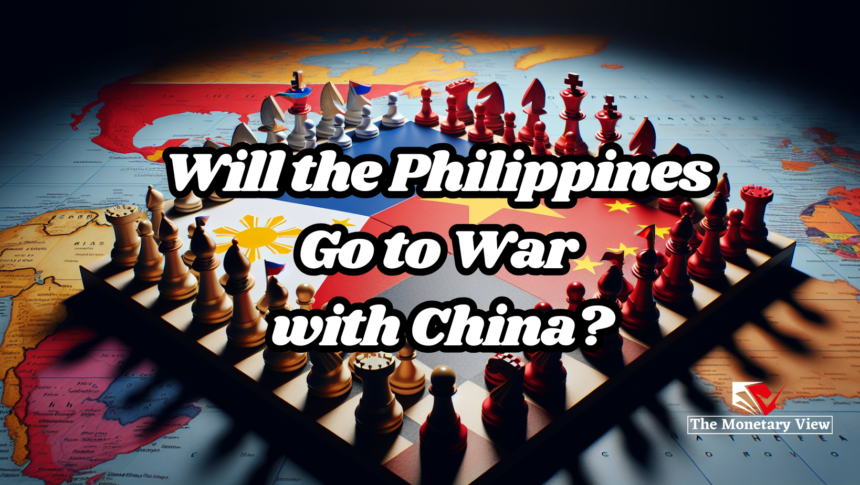Manila, Philippines —Tensions between the Philippines and China have reached a critical juncture, raising concerns about the potential for conflict. As disputes over territorial claims in the South China Sea intensify, the international community watches closely, fearing a possible escalation into war.
Background of the Dispute
The South China Sea, a strategic and resource-rich waterway, has been a long-standing point of contention between China and several Southeast Asian nations, including the Philippines. China claims nearly the entire sea, demarcated by the so-called “nine-dash line,” a claim that overlaps with the exclusive economic zones (EEZ) of several countries, including the Philippines.
The Permanent Court of Arbitration in The Hague ruled in 2016 that China’s claims have no legal basis, a decision Beijing has steadfastly ignored. The Philippines, under President Rodrigo Duterte’s administration, initially pursued a more conciliatory approach towards China, focusing on economic cooperation. However, the recent administration of President Maria Leonor “Leni” Robredo has taken a firmer stance, emphasizing the need to defend national sovereignty.
Recent Developments
In recent months, the situation has deteriorated. Chinese maritime militia vessels have increased their presence near the Philippine-claimed territories, including the Scarborough Shoal and parts of the Spratly Islands. In response, the Philippine government has ramped up its naval patrols and announced plans to modernize its military capabilities.
Last week, a confrontation occurred when Chinese coast guard ships reportedly blocked and used water cannons on Filipino supply boats en route to the BRP Sierra Madre, a rusting World War II ship that serves as a Philippine military outpost on the Second Thomas Shoal. This incident prompted a strong condemnation from President Robredo, who vowed to protect the country’s sovereign rights.
Diplomatic Efforts and International Reactions
The Philippine government has sought to rally international support, calling on allies and regional partners to uphold the rule of law in the South China Sea. The United States, a long-time ally of the Philippines, reiterated its commitment to mutual defense under the 1951 Mutual Defense Treaty. U.S. Secretary of State Antony Blinken stated that any armed attack on Philippine forces, aircraft, or public vessels in the South China Sea would trigger mutual defense obligations.
Japan, Australia, and the European Union have also expressed concern and called for peaceful resolution through dialogue and adherence to international law. The Association of Southeast Asian Nations (ASEAN) remains cautious, with member states advocating for continued diplomatic engagement.
Prospects of War
Despite the heated rhetoric and provocative actions, experts believe that a full-scale war is unlikely. Both nations have significant economic interdependencies and face considerable risks in case of an armed conflict. The Philippines relies heavily on Chinese trade and investment, while China aims to maintain regional stability to ensure its economic growth.
However, the risk of miscalculation remains high. Accidental clashes or unintentional escalation could ignite a broader conflict, a scenario that both sides wish to avoid but must prepare for.
Conclusion
The situation in the South China Sea remains precarious. While the prospect of war between the Philippines and China is not imminent, the ongoing tensions and aggressive posturing underline the need for effective diplomatic efforts to prevent conflict. The international community’s role in mediating and supporting a rules-based order is crucial in ensuring peace and stability in the region.
As both nations navigate this complex geopolitical landscape, the world watches, hoping for a resolution that upholds international law and respects the sovereignty of all nations involved.







